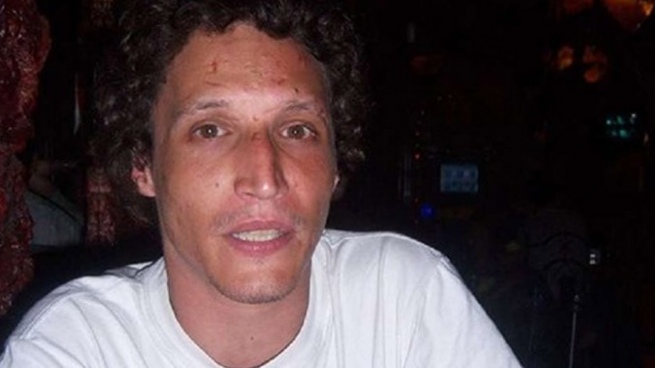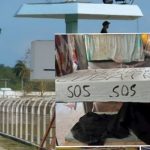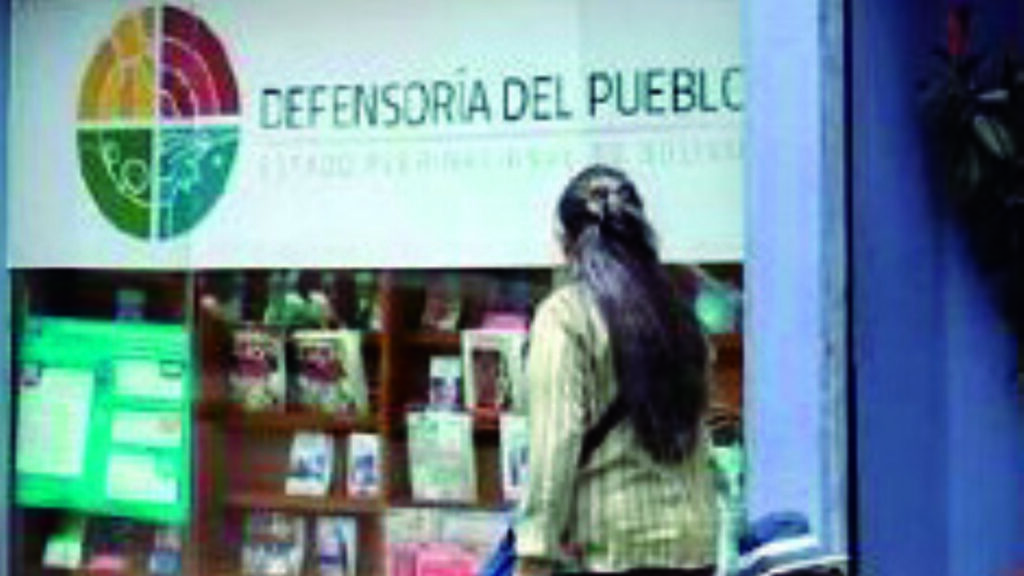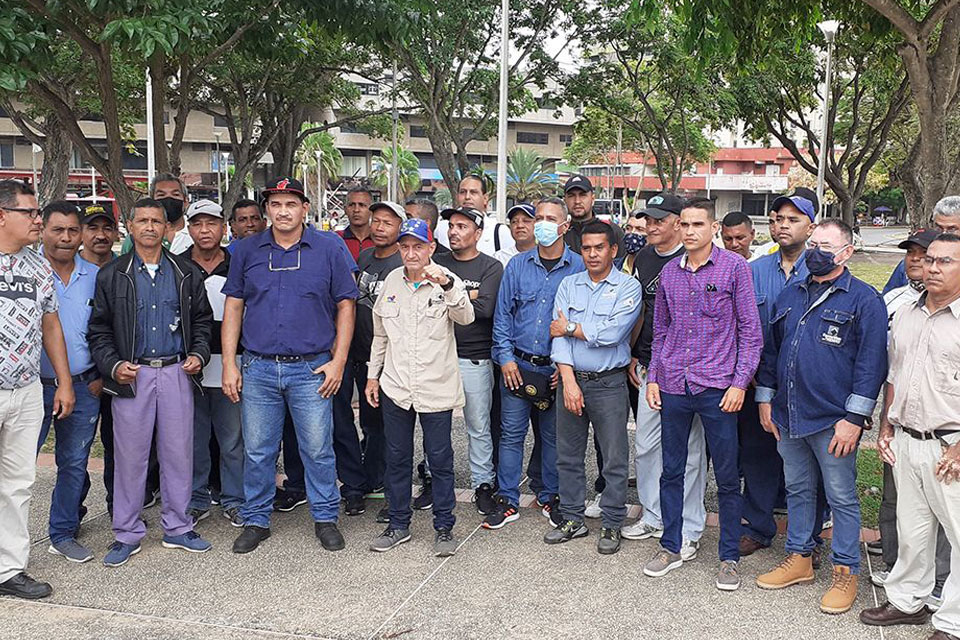One of the sisters of Sebastián Moro, the Argentine journalist allegedly murdered in Bolivia after the coup against Evo Morales, denounced that the investigation of his death in that country “does not move” because “there is a prosecutor’s office that is complacent with the right”.
Penélope Moro announced, in an interview with Télam, that the family will ask the Argentine State to “ask for explanations” from the Bolivian Judiciary for the inaction in the case.
“In Bolivia there is a prosecutor’s office that is complacent with the right, it is a Justice that has always prevailed. It has no history or perspective of human rights. There is no progress in the investigations and the cause does not move“warned Moro, who is also a journalist.
The November 10, 2019 Sebastián Moro was found semi-conscious at his home in La Pazwhich at that time was experiencing hours of tension and violence with police in barracks and armed groups attacking supporters of the Movement for Socialism (MAS).
The harassment included, on the eve of the coup, a attack on the director of the radio station of the Single Trade Union Confederation of Rural Workers of Bolivia (CSUTCB), for which the Argentine journalist from Mendoza worked.
Morales and his vice president, Álvaro García Linera, presented their resignations on November 10, 2019, after the then head of the Army, Williams Kaliman, demanded his apartment from the Presidency, in a decision that involved disobedience to the chain of commanders and that the military chief attributed to the need to “pacify” the country.
Regarding the discovery of her semiconscious brother, Penélope Moro told this agency that “a friend of the family found his door open and Sebastian in bed”, and that then they asked him to take him to a clinic; Upon becoming aware of this situation, Penelope traveled to Bolivia with her mother, Raquel Rocchietti, and her sister, Melody de Ella.
“He was diagnosed with a cerebrovascular accident (CVA) and was hospitalized for a week in a coma until he died on November 16”he remembered.
The family, from the first moment, believed that it was impossible for a stroke to cause Sebastian the other injuries that were found on his body: blows and bruises that an external doctor associated with signs of torture.
“There are different cultural conceptions that complicate the progress of the cause.”
“The first thing I did when I arrived was uncover it, and I saw bruises. A doctor told me they were typical of torture. He even had a displaced lung”explained Penelope.
“Right now we are trying to get the Bolivian prosecutor in charge of the case to request all these reports, but we cannot send them if there is no request from that country,” his sister remarked about the bogged down situation of the legal case.
for Penelope, inactivity is the product of delayed justicenot only “in matters of forensic technology”, but also in “judicial and ideological matters”, which, he reproached, “has no history or perspective of human rights”.
“There are different cultural conceptions that complicate the progress of the cause,” insisted.
Despite this, the Moro family will ask the Argentine government through its Foreign Ministry to ask the Bolivian Judiciary and the Public Ministry to speed up the investigation into the death of the 40-year-old journalist.
“We are with a petition for signatures so that the State once again asks Bolivia for explanations on how Sebastian’s case is going,” insisted his sister, who is confident that there will be “novelties in the coming weeks.”
The case
Sebastián Moro arrived in Bolivia in 2018 after the management of Radio Nacional, under the management of Cambiemos, stopped covering the cases of crimes against humanity that occurred during the last civic-military dictatorship, a task that had become the specialty of the Mendoza journalist.
A few months after arriving in Bolivia, Moro got a job at Radio Comunidad and at Prensa Rural, the station and weekly magazine of the CSUTCB, the Bolivian trade union center.
On the morning of November 9, the day before he was found lying in bed, Sebastián Moro received a call from his boss, José Aramayo, who ordered him not to go to work at the CSUTCB because of the possibility that a group of opposition shock attacked the headquarters of the trade union.
“At five or six in the afternoon I see on Telesur your boss Aramayo tied to a tree, he was being lynched”Penelope recalled about the turn that the street action of the civic committees and other political sectors that promoted the coup against Morales was taking, and also revealed that in those first moments she asked her brother to “turn off the cell phone” because he could be tracked “by Intelligence”.
Aside from his work at the CSUTCB, Sebastián Moro wrote notes as a correspondent from La Paz for Argentine media, among them the newspaper Página/12, medium in which he published his last note, entitled “A coup in progress in Bolivia.”
“Sebastián calls us at 8 p.m. (November 9, 2019) to tell us that he had already sent the note to Página, he tells us that all of La Paz is being destroyed, but that he wanted to go out for a walk to clear his mind” , reviewed his sister.
And he added: “From there we could not communicate with him anymore.”
Penélope stated that the last days of her brother’s life, whom she described as a “great reader” of writers such as Juan Gelman, Paco Urondo, Rodolfo Walsh, Miguel Briante, César Vallejo and Clarice Lispector, reflect “a circle” between the area in which he worked and his tragic end.
“He left Mendoza investigating the operation of State Terrorism in the province and ended his life announcing a coup”, Penelope stressed.
And in relation to the coup that took place in Bolivia, he added that Sebastian’s family and associates never imagined “that it was going to be an old-fashioned coup with the military, like in Plan Condor.”
In October of last year, Penelope, her sister Melody and their mother Raquel They launched an international campaign to ask for Justice that has the support of unions and human rights organizationsamong them Madres de Plaza de Mayo Línea Fundadora, the Center for Legal and Social Studies (CELS), the Press Union of Buenos Aires (Sipreba), and HIJOS Capital, among others.

“The Moro family filed complaints in the Federal Justice in Argentina so that the case be declared a possible crime against humanity”reported in the document released by the organizations seven months ago.
Shortly after Sebastián’s death, Morales left the capital and, later, already in hiding and trying to leave the country, denounced that he had been overthrown by a “civic, police and military” coup, amid massive protests in the streets and attacks on MAS members, as well as their families and their homes.
During those days, the so-called massacres of Sacaba and Senkata took place, when members of the Bolivian Armed Forces and the security forces -already with Jeanine Áñez in command of the Executive-, fired indiscriminately at demonstrators, which left a total of 27 dead. and hundreds of people injured.
In Bolivia, the judicial case that investigates the circumstances by which Sebastián Moro was killed is labeled with the crime of homicide and processed in the 10th Court of Precautionary Instruction in Criminal Matters of La Paz.
The investigation of the case was in the hands of prosecutor Dubravka Jordan Velázquez, although in recent weeks she has withdrawn from a request made by the lawyer who sponsors the family, Mary Carrasco, and was replaced by prosecutors Juana Cortez Choque and Cristhian Fernando. Copa Salguero, according to sources that follow the case in Bolivia.
The family of Sebastián Moro, after the request to the Foreign Ministry, prepares a presentation in Congress within the framework of the international campaign that demands justice for the death of the journalist.


















